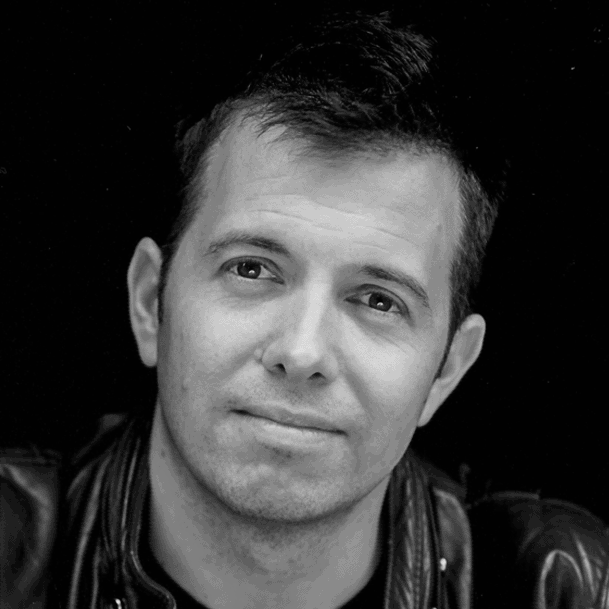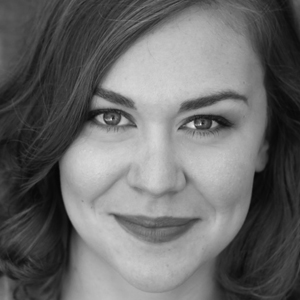Which Came First, Comedy or Music?
Just as the dream-team of Britta Johnson and Katherine Cullen were wrapping up the first week of rehearsals for their show Stupidhead!, actor/producer Colin sat down with Britta, Canada’s busiest musical theatre writer/creator, to talk about her childhood aspirations, writing under pressure, and why she wanted to work with someone who has clearly stated to have “no musical theatre training or ability.”
COLIN
What dreams did you have as a kid? What do you remember?
BRITTA
I very specifically wanted to be the next Victor Borge when I grew up. Do you know who Victor Borge is? (Writer’s Note: educate yourself here.) I am NOT making that up, it is very true. I have writing about it from a grade five presentation about what I wanted to be when I grew up.
I wanted to be a pianist… That was my thing! But I also wanted to be a comedian and a performer. One day, I said, “I want to be a piano-playing comedian,” so my dad showed me old VHS tapes of Victor Borge. He had this great one of him falling into a swimming pool while he was playing the piano. Very funny, physical performer.
COLIN
For the record, I know who Victor Borge is.
BRITTA
Well that’s good because not a lot of people do.
COLIN
So what came first, comedy or music?
BRITTA
Who knows? I started piano lessons when I was three—
COLIN
And fart jokes when you were one.
BRITTA
Exactly. I can’t really keep track. It was always one of those two things for me. And so when I realized I could combine them, that’s actually what led me to writing musicals. I wasn’t that into musicals, I just wanted to be a writer for The Simpsons. I wanted to mix comedy and music. It was all part of the same path. Which is odd now because I only write shows that are sad, about sad women… NOT Stupidhead!! My other ones.
COLIN
That’s funny because when I saw you do your Life After Fringe fundraiser (Writer’s Note: Life After is now part of Canadian Stage’s next season … told you she was busy!) you were your own host, opening act, accompanist, and you had these amazing guests, and I found you so charming! I guess I’m surprised to hear you say that you haven’t written anything funny because I find you so funny. Is Stupidhead! the first funny show you’ve ever written?
BRITTA
The first shows I ever wrote were complete comedies. I started writing in high school and I wrote two one-acts, one with my friend and one on my own, and they had pretty good success. So I pitched a full-length musical to my high school, which I would write for credit instead of having to take science. It was called Big Box Story and it was totally outlandish and you could tell how much Simpsons I watched and it had a cast of forty and was completely gag-city. It did not have a serious bone in its body. I had just wanted to write a comedy but the music became a part of it.
That went up at my high school and it was then invited to perform on the Stratford Festival stage (I was born in Stratford) and that’s where I kind of got my start. And then I wrote a show for Blyth Festival’s Young Company and it was totally a farce. Then it was Life After, which I started writing when I was eighteen and I was a serious music student at a serious music school and I should be serious… (laughing) And it kind of became my thing, I don’t know.
COLIN
So do you feel that Stupidhead! is a step away from what you do? Or a step into what you want to do? Or it just is what it is?
BRITTA
I wanna do whatever it is I’m doing. I love to write complex music about complex things I wrestle with in the world. I also love to laugh (Colin’s Note: she does!) and I love to make other people laugh (Colin’s Note: see previous Colin’s note). I don’t think that either needs to be exclusive.
COLIN
Fair enough.
BRITTA
I think they feed each other.
COLIN
When Katherine approached you, why did you say yes to someone who had no musical theatre training?
BRITTA
Well—
COLIN
Wait, wait, wait. What was your relationship with Katherine beforehand? I LOVE a good origin story.
BRITTA
We were friends. We certainly became BEST friends from doing Stupidhead! together. I met her through Rosamund Small when she was doing Vitals. We always made each other laugh really hard. That was kind of where we became united. And yeah, she was someone who I liked and respected and she said she needed help writing songs. I love helping people write songs! It’s my favourite thing to do.
COLIN
Really?!??!
BRITTA
I have a lot of favourite things to do but I really love teaching and I work at YPT every year helping teenagers write songs, and I am NOT comparing Katherine to that but what I’m saying is I don’t have an exclusive thing about who my collaborators need to be. I think interesting things come from all kinds of different places.
COLIN
So that’s why you said yes.
BRITTA
Yeah. It was a no-brainer. I love Kath. It’s like the best hang in the world and I love this project. She also approached me a couple of days before she was supposed to do this workshop (Writer’s Note: this was at Videofag many years ago and it is where a lot of Katherine’s current team came to see the project). What was I supposed to say?
COLIN
Do you like the pressure of working that quickly? Do you want to be working that quick?
BRITTA
It totally depends on the project but I can’t do anything without pressure. I don’t know how to and I am not afraid of pressure. I thrive on it. With comedy, I think the best things come out of spontaneity. “Well, we gotta come up with something!” and you come up with gold just out of necessity. I do a lot of collaborating with my sister Anika and things happen fast with her. But working on things alone, writing about things that are a bit more sad, it’s a bit of a process, a meditation.
COLIN
How hard has it been to create something specific to support someone else’s dream? Was there a difference working with someone who professed to having no musical theatre training?
BRITTA
This project is written to sound like and support Katherine’s voice. Katherine struggled with dyslexia as a child, and even now, and these songs focus on her feeling lost and feeling like an “other.” And she wanted to tell her story through song. What was fun for me is that these songs don’t sound like what I write when I’m by myself on other projects that are more specifically musicals. This music isn’t about polish or complexity. All Katherine had to do to be an effective collaborator was to honestly be her weird and wonderful self.
It’s a real exercise in me letting go of my own ego because if we made polished, performative songs that were perfectly structured, and perfectly rhymed, that would not be serving what this show is about.
COLIN
Right.
BRITTA
It wouldn’t be serving what Katherine is about and what presenting this is about. I am here to serve her. I feel that and it’s kinda nice. It’s nice that it’s not about me.
COLIN
When you’re working on these songs are there times where you’re thinking, “I hope this makes Katherine laugh because it makes me laugh” or are you sure she’s gonna think it’s funny because you think it’s funny? I think there is a real beauty in that.
BRITTA
We don’t want people to know which songs I wrote alone, or which we wrote together, or which ones Katherine wrote and I wrote the accompaniment for. There are songs we did together where I remember exactly the moment we figured out what it was going to be, and we were howling laughing. The goal is always to make Katherine laugh. It’s the best…
COLIN
You’ve worked with your sister and with Sara Farb in the past. These are people who work in musical theatre quite a bit. In terms of writing with Katherine, someone who doesn’t work in that medium, is there stuff that you’ve learned? That you can take away?
BRITTA
It’s been a totally different exercise than what I’m used to. The songs fulfill a different purpose in this show than, say, in the Morris Panych show that Anika and I are working on now, which is a traditional musical where we’re mining for the dramatic moments that need to be sung and it’s about clean lyrics that are character driven and the music is adding a subtext that wouldn’t be there with just text. It’s a whole different task.
For Katherine, and the character of Katherine, it’s about the comedy, the pleasure, and the struggle of performing them. She’s using these songs to express big emotion and things that have been hard for her to say and talk about throughout her life. That’s similar to musical theatre. For me as the writer, though, the story we’re telling here isn’t about the most clever songs in the world or the most complex music in the world, it’s about Katherine’s very specific voice being represented. It was challenging in a new way because for the first time I wasn’t trying to sound like a character that I don’t know, I wasn’t trying to sound like myself, I was trying to sound like Katherine, my friend, who I do know. And that came with a whole other set of rules than would otherwise.
COLIN
Is that exciting?
BRITTA
TOTALLY!
COLIN
And terrifying.
BRITTA
This show is about the truth, Katherine’s truth, and her owning that. It’s what I love about it.
Stupidhead! is on at Theatre Passe Muraille until April 2.
For tickets or more information, click here









Comments